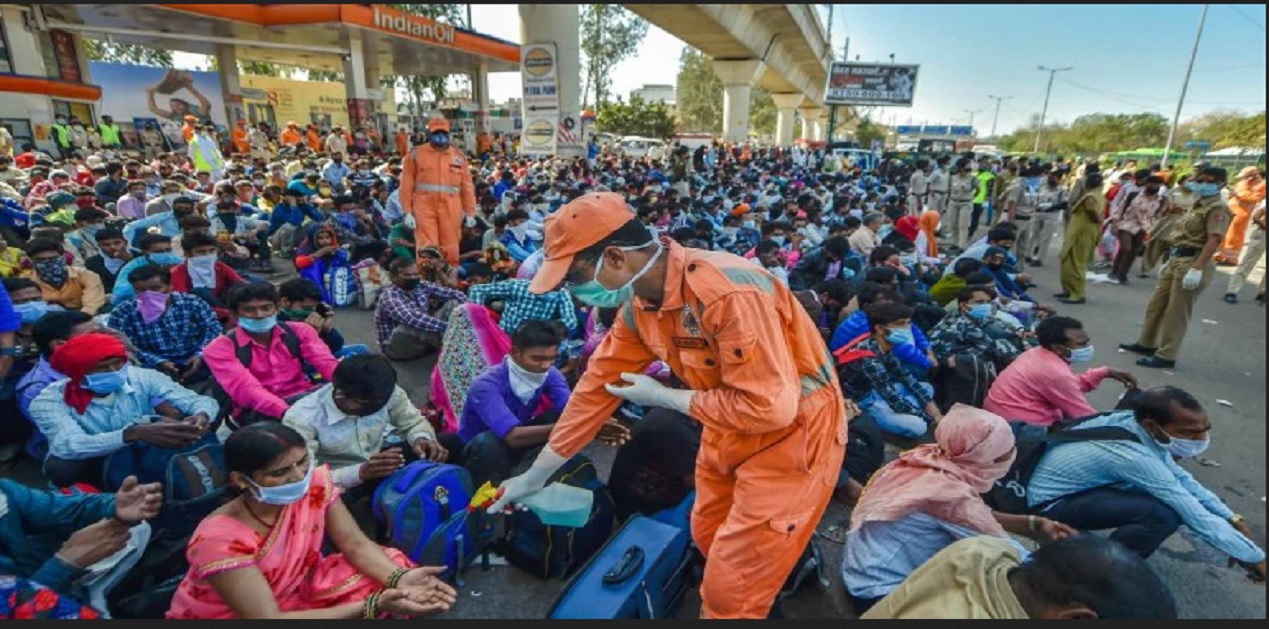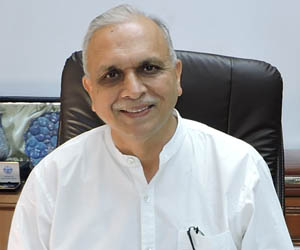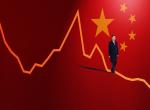Announcing a nationwide, 3-week lockdown at four-hour notice requires courage and conviction. PM Modi displayed these qualities in full measure during his address to the nation on 24th March when he explained the reasons for this unprecedented step. Understanding the gravity of the situation and convinced by his argument for maintaining strict social distancing, the countrymen have fully supported him.
But, within a couple of days, it became apparent that the government had not made adequate preparation to implement the lockdown. Lakhs of informal sector workers who found themselves without accommodation, food and jobs, started migrating to their villages on foot to escape the lockdown hardship. The poignant visuals of thousands of people walking to their villages will stay in memory for a long time. Neither the central government nor the state governments had foreseen and planned for such an exigency. Some of these workers may have been infected. Undetected, they pose a risk to the populations in their villages. The impact of migration of workers on the spread of the virus in their communities is yet to be assessed. So dire was the situation that the Prime Minister publicly apologised for the hardship brought upon the poorest segments of the population due to the lockdown but justified the decision.
The religious congregation at the Tablighi Jamaat Markaz in Delhi on 13-15 March in Delhi, held in defiance of the Delhi government’s orders on the prohibition of large gatherings, showed the utter disregard of civic responsibilities by the organisers. Their actions have put at risk vast populations spread across the nation in danger of Covid 19 infection. Many of these people came from coronavirus infected countries. The surge of infection in the states has been traced to the people who attended the Tablighi Jamaat congregation. While the organisers have been booked for breaking the law, it is also surprising that the police station was located next to the Markaz where the religious gathering was being held. Yet, the police took no action to prevent the gathering. It remains to be seen what price the country will have to pay for this terrible act of negligence and criminality. Worse, the incident has been communalised. The lessons of communal riots in north-east Delhi in February seem to have been forgotten.
It was heartening to note that the hospitals, the health-care workers, doctors, nurses and paramedics have been working overtime and selflessly to provide healthcare to the needy. The conditions of their work are not easy. The shortage of masks, ventilators, personal protection gears et cetera has put the doctors and the staff at grave risk to their health. Steps have been taken to mitigate shortages. The government and industry are in dialogue with each other to identify the requirements and start producing the equipment in large numbers. Tenders have been floated by the government for the procurement of the essential equipment. The Indian industry is gearing itself up to undertake the manufacturing of such equipment at a rapid pace. The Defence Research and Development Organisation (DRDO) has passed on the designs of the ventilators that they had developed to the industry free of cost for manufacture. However, the danger of the healthcare system being overwhelmed is ever-present.
At the time of crisis, the role of media becomes extremely important. Fake news has been circulating freely. Fortunately, the mainstream media did a good job of raising awareness about the virus by organising discussions and phone-in programs with the top doctors and experts from India and abroad. By and large, politics has been kept out of the discussions although it is to be seen whether the restraint shown by the media will continue, particularly, after the Markaz incident.
The debate about the frequency of testing the virus raged through the week. The opinions were divided amongst those who favoured more testing and those who said this is not feasible in the country of the size of India. Are the numbers of those infected are reliable in the absence of widespread testing? Has the virus been transmitted to the community? These questions had no clear answers and are likely to be debated in the days to come. The government maintained that community transmission has not yet taken place in India. The virus is relatively new and the research on its behaviour still in its infancy. There is as yet no cure or medicine. The vaccine is at least 12 to 18 months away. Not enough data about the way the virus is spreading is available. As a result, even experts are unsure about how the virus may behave in future.
The government followed up the lockdown announcement with several relief measures ranging from a special Rs. 15,000 crore fund for dealing with the pandemic and tax deferments. The relief package of Rs 1.7 lakh crores is aimed at the poorest sections of the society. These measures were appreciated but it was also felt that they were not enough given the needs of the people affected by severe dislocation caused by the virus. Several sectors of the economy need urgent support. Joblessness is likely to grow. The global economy has gone into recession. Indian economic growth is likely to go down further. The Economic Task Force set up by the government needs to come up with more relief measures and credible plans to shore up the economy.
Many people have noticed that compared to the deadly mayhem that the virus has caused in Spain, Italy, the US and other countries, in India it has been spread both in terms of the number of active cases and the fatalities. The No. of cases in India is still below 2000 and the casualties are below 100. These numbers are showing an upward trend. Experts have warned that India should remain prepared for the worse. The lockdown must be strictly enforced. Its community spread must be stopped. During the first week of the lockdown, the number of infections rose rapidly. The next two weeks are crucial.
India will have to constantly review its strategy of dealing with the virus as new data emerges. There is as yet no evidence of the flattening of the curve. However, the lockdown should hopefully begin showing positive impact after two weeks. Fingers crossed, India may be able to come out relatively less harmed because of the steps announced in time. The worry is how to handle the peak when it comes, will our health system, which is at the best of times, overwhelmed, be able to take the increased load of patients.
The coronavirus has also led to the start of many conversations regarding the post coronavirus world. China has been severely criticised for hiding the information about the outbreak of the virus and now for using the opportunity to project itself as the saviour of the world. It went into propaganda overdrive highlighting how it was sending medical equipment and teams of doctors to scores of countries including in Europe, South Asia and Africa. But, it emerged that many of the test kits and personal protective equipment that it had supplied were defective. That said, countries continue to turn to China for whatever help they can get because China remains the largest manufacturer of medical devices. The World Health Organisation (WHO) came for sharp criticism for not criticising China for its handling of the crisis at the early stages.
The mighty United States has been humbled by the virus. At the initial stages, President Trump underestimated its severity of the virus and took no advance measures to contain it. The experts are warning that 100,000 to 200,000 people in the US may die before the virus reaches its peak. With presidential elections due in November, President Trump’s fate hangs in balance.
The West, with its advanced health systems, industry, research and development, has been ravaged by the crisis. Every day, thousands of people are dying in these countries. This is unthinkable. In the post coronavirus world, countries will be ranked on how they dealt with the crisis and not for their military or economic strength.
The health crisis has been accompanied by a severe economic crisis as well. The virus may die down but the consequences of the economic disruptions will be with us for a long time. Travel, civil aviation, tourism, hospitality sectors have been devastated by the virus. Markets have plunged across the world. Oil prices are near their historic lows. The present economic crisis is considered to be even worse than the 2008-2009 financial crisis. The IMF has assessed that the global economy is in recession and more than 80 countries have approached the IMF for urgent assistance. The G-20 was found wanting in coming out with any worthwhile initiative to deal with the crisis. Essentially, most countries are on their own trying to do their best to deal with the crisis. International cooperation, which ought to have been at its peak, is noticeable by its near absence.
Everyone has been affected by the virus. It has exposed acute socio-economic inequalities in India. On one hand, millions of workers, out of jobs, out of food were migrating to their homes on foot undertaking long journeys, on the other, there were reports of the super-rich organising chartered planes to ferry the stranded children from educational institutions in the West. Reducing inequalities, building social security safety nets should be the priority for the government from now on.
The Indian economic model needs to be re-examined. India’s dependence on China for all kinds of stuff including critical raw materials has badly exposed the weaknesses of Indian economic strategy. In critical areas, we must try and become self-sufficient. Further, the informal sector which accounts for over 90 per cent of the economy has been neglected too long. The benefits of the growing economy must be shared equally. Greater attention needs to be paid to the informal sector and the poorer sections of society. The capacity of the families to provide care during the time of crisis needs to be enhanced.
It is becoming clear that without the help of the civil society, it would be difficult for any government to handle the crisis of such large proportion. People are contributing generously to the special Prime Minister's Citizen Assistance and Relief in Emergency Situations Fund (PM CARES Fund). Many grassroots level organisations are helping the poor by providing food, medicine and shelter. We need a strong, trusting government-civil society partnership which is mutually reinforcing. Voluntarism needs to be encouraged.
It is not uncommon that during war like situation such as the present one, citizens will have to accept restrictions on their movements and behaviours. Indian citizens have reposed trust in the leadership of Prime Minister Modi. However, it is equally necessary to ensure that the democratic system in the country is not damaged during the time of the crisis. At the same time, citizens should fulfil their responsibilities and discharge civic duties. The government will have to ensure that it continues to make efforts to retain the trust of the citizens in difficult times.
We are still in the middle of the crisis. It will be a few weeks before we know the impact of the lockdown. If the infection numbers stabilise, India will have the time to recover. Understandably, the government is focused on immediate measures to deal with the crisis. However, the crisis may get prolonged and we should start thinking about the medium to long term solutions to be better prepared. This is a good time for India to think how the crisis can be turned into an opportunity, by revamping its health sector, addressing the issues of social security, strengthening the informal sector, encouraging research and development, and becoming self-sufficient in critical areas of technology. It is also vital that we maintain social cohesion during this time. The maximum attention should be given to the most vulnerable sections of society. Despite numerous wake-up calls, we have not paid enough attention to non-traditional security threats to national security. We also need to give due attention to the national security aspects of the pandemic crisis. A strong and sensitive leadership, which has the trust of the people, is necessary at this moment.
(The paper is the author’s individual scholastic articulation. The author certifies that the article/paper is original in content, unpublished and it has not been submitted for publication/web upload elsewhere, and that the facts and figures quoted are duly referenced, as needed, and are believed to be correct). (The paper does not necessarily represent the organisational stance... More >>
Image Source: https://akm-img-a-in.tosshub.com/indiatoday/images/story/202003/PTI29-03-2020_000025A-770x433.jpeg?g53yTb3r8wyd0CjJ7NjwUlV_GRr8CAPC











Post new comment